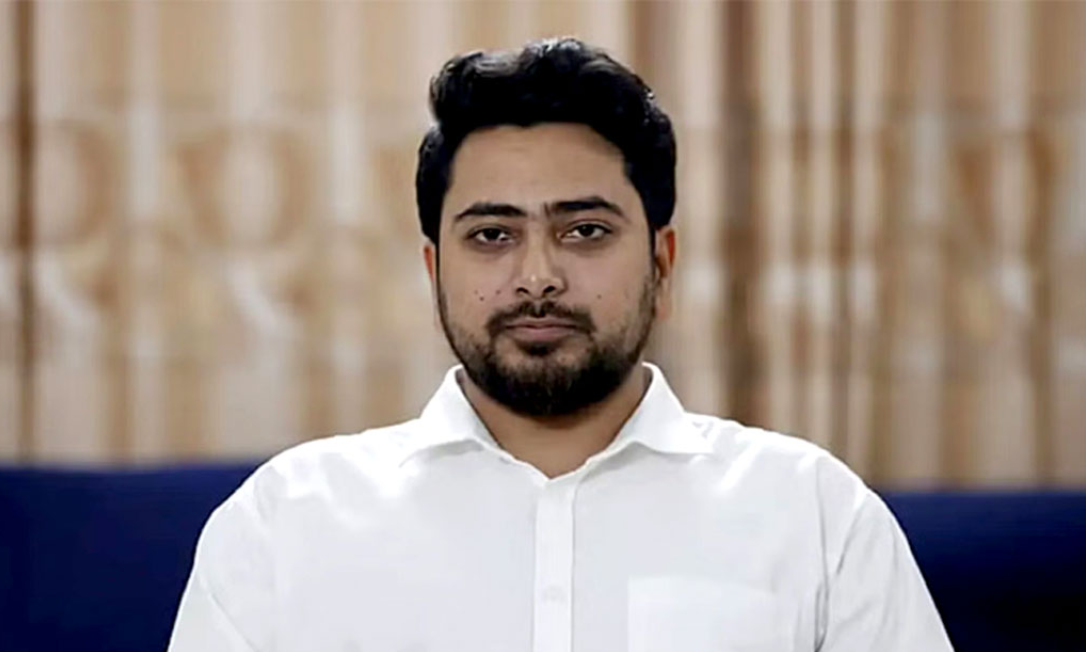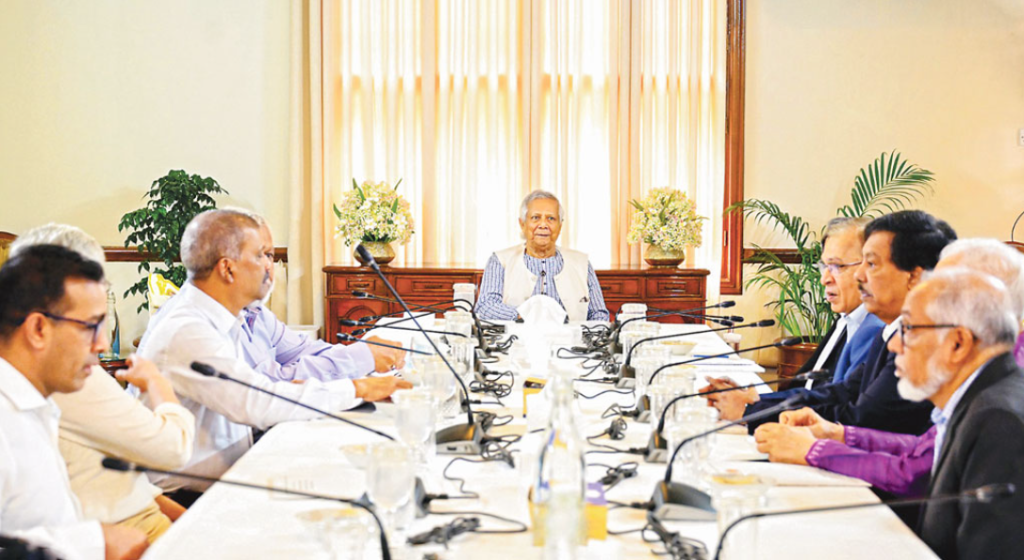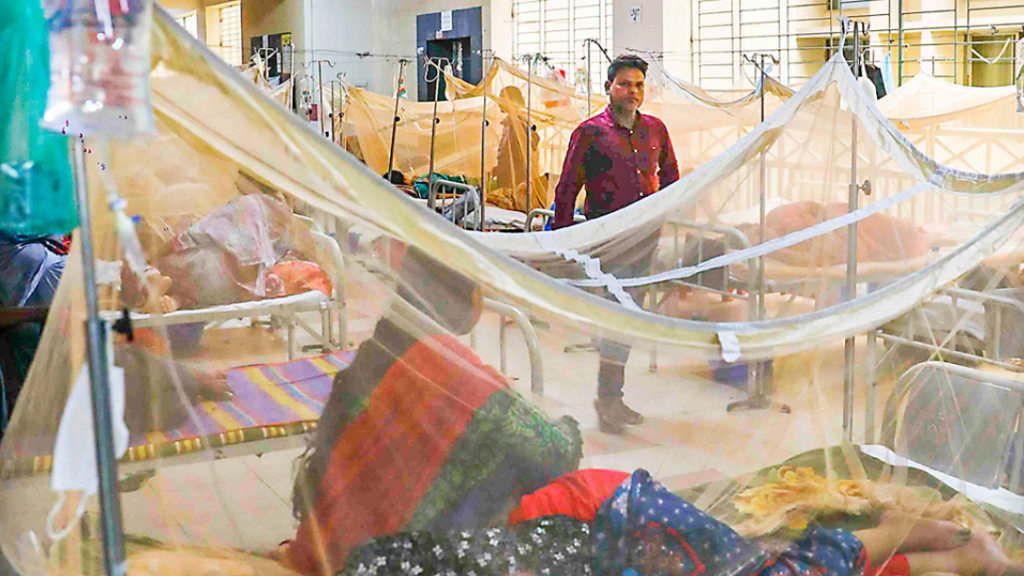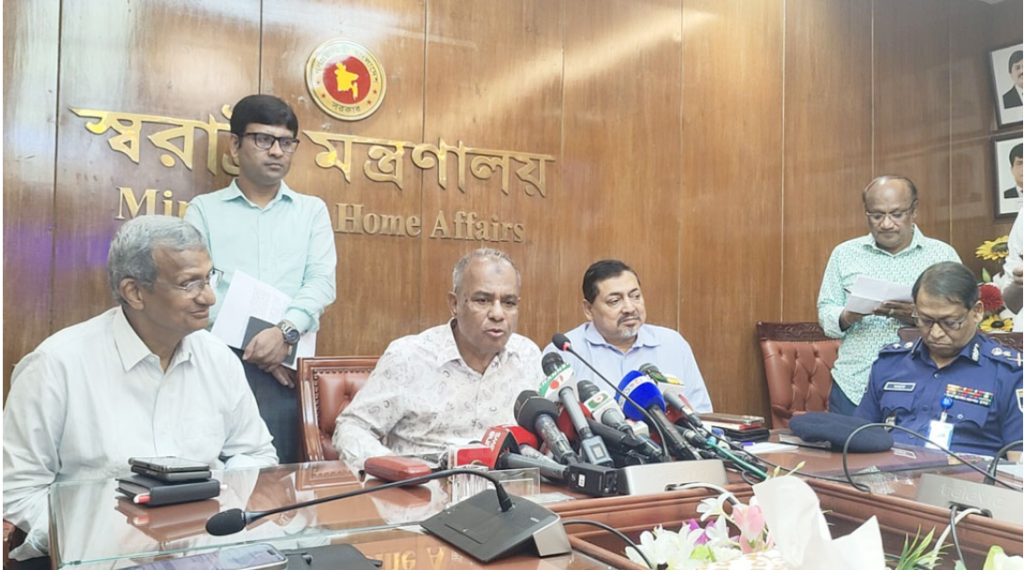Desk Report:
National Citizens Party (NCP) convener Nahid Islam said, “The media has not been reformed as expected. The way the DGFI used to control it before, that practice still exists. The media is under the control of political parties, various corporate institutions. When I was in charge, I formed the media reform commission. Their responsibility was to propose reforms and implement the whole issue through the government. It was the responsibility of the law and home ministries to bring media workers who are allies of fascism to justice.”
Nahid said these things in response to questions from journalists after giving his statement at the International Crimes Tribunal today, Thursday. He gave his statement against Sheikh Hasina and three others in the killings carried out across the country during the anti-discrimination movement before the International Crimes Tribunal-1 headed by Justice Md. Golam Mortuza Majumder. The accused in the case, Sheikh Hasina and Asaduzzaman Khan Kamal, are absconding. While the other accused, Chowdhury Abdullah Al-Mamun, has given his statement as a public witness. 47 people have testified in this case.
Regarding the army, Nahid said, “The army officers against whom there are complaints have not been arrested even in a year. I myself have filed a complaint with the Disappearance Commission. Why are army officers not being arrested when they opened fire in various places including Rampura-Badda during the disappearances and coup? I have doubts about this – is there any pressure? However, I would urge that even if there is any pressure, the law be followed and justice be ensured, regardless of these.”
Earlier, in his statement to the tribunal, Nahid Islam said, “We held a sit-in and protest program in Shahbagh on August 4 last year. On that day, we announced the March to Dhaka program on August 6. However, the government declared a curfew and carried out a massive massacre across the country. We learned that the government had made extensive preparations to thwart the August 6 program. Mobile phones and the internet would be shut down, we might be killed or disappeared. That is why we decided to move the March to Dhaka program forward to August 5.” Nahid said, “On August 5, people from all over the country started coming to Dhaka. We stayed in Shahbagh. Shots were fired at protesters in the Shaheed Minar and Chankharpul areas. When the army left the Shahbagh road at one stage, it turned into a sea of people in a few moments. We heard that millions of people had entered Dhaka through the entrances to Dhaka. We left Shahbagh for Ganabhaban with a procession. On the way, we received news that Sheikh Hasina had resigned and fled in a helicopter in the face of mass protests. That day, we received news of widespread massacres across the country.’
Nahid Islam further said, ‘After the fall of the government on August 5, we, the coordinators, held a press conference and demanded the release of all political prisoners and the formation of an interim national government. We also demand that we will not accept any kind of military rule or military-backed rule. The police and various law enforcement agencies opened fire on the protesters indiscriminately. They were even given instructions to fire from helicopters. Armed terrorists from the Awami League and its affiliates opened fire and tortured them.’ Nahid Islam blamed former Prime Minister Sheikh Hasina, former Home Minister Asaduzzaman Khan Kamal, and the heads of the police and various law enforcement agencies for all the killings and atrocities. He sought justice from the tribunal.
Regarding the movement, Nahid Islam said, ‘In consultation with other coordinators and student leaders, we announced the continuation of the complete shutdown program on July 20. Although the announcement was sent to all media, no electronic media broadcast it. That night, I learned that the government had declared a curfew. At around 2:30 am, some people posing as DB police arrested me from my friend’s house, handcuffed me, blindfolded me, and took me to a private car. They started beating me after putting me in the private car. Then I was taken to a room. There I was interrogated for a while. During the interrogation, they kept me handcuffed and blindfolded. They asked me who was involved in the movement and why the movement was not stopping. As a result of the torture, I lost consciousness several times. They told me that I had been kidnapped. If the movement was not stopped, I would never be able to leave. After 24 hours, they left me blindfolded near a bridge in the Purbachal area and left.’
Nahid further said, ‘I was admitted to Gonoshasthaya Hospital in Dhaka and held a press conference to reveal the kidnapping and torture. I learned from the hospital that many coordinators had been kidnapped. The DGFI forcibly took away coordinators Hasnat, Sarjis, and Hasib and placed them with three ministers. The picture was circulated in the media. On July 22, DGFI officer Lt. Col. Sarwar went to the hospital and pressured them to suspend the movement and said, “If the other missing coordinators want to be returned alive, the movement will have to be withdrawn.” On July 23, DGFI organized a press conference at Dhaka Reporters Unity and forcibly took me there from the hospital. There, there was pressure to announce the end of the movement, but I announced that the movement would continue. Later, DGFI brought me back to the hospital.”
Nahid said, “They threatened to re-disappear me because I did not speak at the press conference as the DGFI had ordered. When coordinators Baker and Asif were released from their abduction on July 24, they were admitted to this hospital. Since then, the hospital has been kept under complete surveillance. The hospital’s internet, telephone and newspapers were shut down. Our mobile phones were taken away. No one was allowed to contact us. On July 26, some people posing as DB went to the hospital and took the three of us to the DB office. There, DB Chief Harun asked us to suspend the movement. Otherwise, he threatened that various cases would be filed against us. We did not agree. The next day, coordinators Hasnat and Sarjis were brought to the DB office. Later, coordinator Nusrat was also brought. There, we were interrogated and physically tortured. I was not given medicine. Our guardians were also pressured to stop the movement.’
Describing the DB office, Nahid said, ‘If we did not withdraw the movement, more female coordinators were taken away and threatened with torture. At one stage, I was forced to read a written statement from them to withdraw the movement and it was videotaped and broadcast to the media. They told us that they were taken away, detained and tortured on the orders of the Prime Minister and the Home Minister. DB chief Harun offered to take us to the Prime Minister’s office. We refused and started a hunger strike to death. We were released on August 1 after fasting there for more than 30 hours and fell ill. That day, we informed the six coordinators through a press release that the DB office had announced the forced withdrawal of the movement. We announced that we would continue the movement.’




